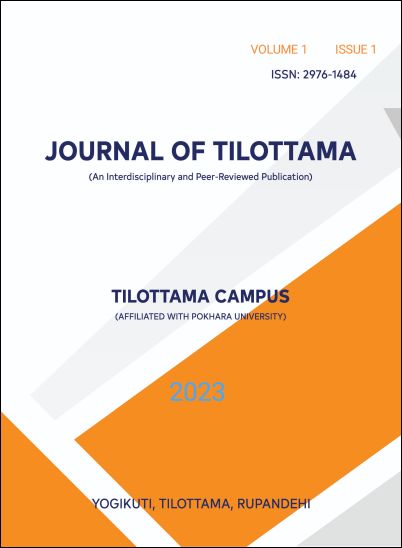Good Governance and Economic Growth in Nepal: A Critical Appraisal
DOI:
https://doi.org/10.3126/jtilottama.v1i1.64558Keywords:
Economic Growth, Good Governance, Effective Use of Resources, Stable, CorruptionAbstract
The paper seeks to examine the connections between good governance and economic growth in the context of Nepal. In doing so, it attempts to examine Nepal’s existing level of good governance and how it affects economic growth, identify the dificulties Nepal has in promoting good governance, and make recommendations for enhancing good governance and fostering economic growth in Nepal. This paper concludes that Nepal has long grappled with challenges of corruption and weak institutions, which have hampered its ability to thrive economically. One of the biggest challenges to good governance in Nepal is corruption. Corruption can take many forms, including bribery, nepotism, and embezzlement. It can distort the market and discourage investment, leading to slower economic growth. Another challenge to good governance in Nepal is political instability. Despite these obstacles, the paper further concludes that Nepal has improved recently in terms of lowering poverty and increasing access to services, as well as by taking steps to promote the expansion of the private sector. In addition, the paper suggests some measures to cope with corruption and take initiatives for the good governance. By investigating the interplay between good governance and economic growth in the context of Nepal, this study aims to contribute to the existing knowledge base and inform evidence-based policy decisions.
Downloads
Downloads
Published
How to Cite
Issue
Section
License
Copyright (c) 2023 Tilottama Campus

This work is licensed under a Creative Commons Attribution-NonCommercial 4.0 International License.
This license enables reusers to distribute, remix, adapt, and build upon the material in any medium or format for noncommercial purposes only, and only so long as attribution is given to the creator.




